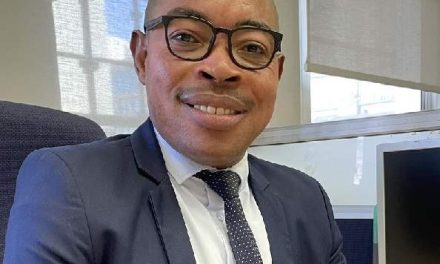
Dagbreek School benefits from e-waste recycling project

By Linda Machinga
Dagbreek School for the Intellectually Impaired recently took part in the electronic waste recycling project which was in collaboration with the Kleentek Waste Management and Scrap Salvage initiated by the Recycle Namibia Forum.
The initiative was aimed at creating an environmentally sustainable workplace.
Kleentek Waste Management, collected 1.6 tons of electronic waste and related office equipment from Bank Windhoek branches in and around Windhoek.
The waste was then transported to Scrap Salvage who logged it under the Dagbreek School Collection Centre, where the children dissembled and retrieved the recyclable material from the e-waste and a payment was made to Dagbreek School on the value of the recyclables.
According to Bank Windhoek, Dagbreek School was then chosen as a beneficiary because of its contribution to recycle awareness and promotion. The school also obtained collection bins to collect not only paper, plastic, cans and glass, but also electronic waste, household batteries and used light bulbs.
Dagbreek School Principal, Paul du Plessis said “this exercise highlights the importance of taking responsibility for our own waste as it also reduces the amount of waste that ultimately ends up on our landfill sites.”
“Thank you Bank Windhoek, RNF, Kleentek Waste Management and Scrap Salvage, we welcome these types of gestures and it means that our efforts at being environmentally responsible are being recognized,” he said.
Caption: Managing e-waste: Scrap Salvage’s Financial Manager, Philip Barnard; Kleen Tek Waste Management’s Operations Manager, Tommie van der Merwe; Bank Windhoek’s Coordinator of Sponsorship and Events, Suzette January and Dagbreek School Principal, Paul du Plessis, in front of one of Scrap Salvage’s skip containers at the Dagbreek School premises.












































